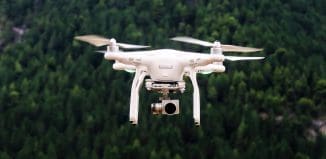Turkey’s defense projects slowed down without Israel’s support
This post is also available in:  עברית (Hebrew)
עברית (Hebrew)
The severance of the defense ties between Turkey and Israel is causing problems for some major Turkish programmes, as seems from reports in the Turkish press .
From the Göktürk-1 surveillance satellite meant to monitor Turkey’s borders to the unmanned aerial drone ANKA and even missile batteries – According to BGN News, delay in completion of defense contracts worries Turkish Armed Forces.
Concerned of intensifying clashes between the Kurdish People’s Protection Units (PYD) and the Islamic State of Iraq and the Levant (ISIL) in Syria, the Turkish Armed Forces (TSK) is displeased with delays to several defense contracts. The TSK has demanded the hasty completion of several high-technology projects aimed at enhancing intelligence-gathering and strengthening troops on the ground.
Through the Ministry of National Defense, military officials have notified the government of the delayed projects, noting how the strides taken in the defense industry between 2008-2012 had slowed down.
One of the delays is the launch of Göktürk-1, Turkey’s highest resolution reconnaissance satellite, which has been delayed for three years. An agreement was reached with Italian firm Telespazio in 2009 for Göktürk-1 to be launched in 2013, however delays have postponed the launch of the EUR 261 million satellite until 2016 at the earliest.
Before the severance of the ties Turkey negotiated the purchase of an Israeli made spy satellite.
The ANKA project, initiated in order to reduce the dependence on Israel’s Heron unmanned aerial vehicles (UAV, has also suffered a three year delay. With test flights first initiated in 2010, the ANKA was supposed to be delivered to the TSK in 2012, however flaws and crashes kept the project from completed. There are two ANKA’s kept in the hangar at the Sivrihisar Air Command, however neither are used for operations.
Meanwhile the more advanced ANKA-S that the Air Force Command wants to include in its inventory by 2016 has also been delayed by one year.
Turkey, a NATO member, showed interest in the Israeli made Arrow ballistic missiles defense system, but ever since the ties were cut it has been looking for an alternative.
The establishment of a long-range missile defense system is similarly uncertain. Though China won the USD 3.4 billion tender to provide such a system for Turkey, the project has been put on hold by the United States over concerns regarding security and the compatibility of the weaponry with NATO systems. While the talks for such a system were initiated in 2013, no such progress has been made in that regard. Currently Patriot missile batteries from the United States and Germany are being used to defend Turkey from any missile strikes coming from Syria.
Additionally, Turkey’s first domestically-designed and manufactured fighter jet, which is supposed to be in service by 2023, hasn’t even left the drawing board yet. Reconnaissance balloons and camouflaged camera units meant to monitor the Syrian border still haven’t been delivered .





























